7 Best XRP Wallets for 2024 – Safest Ripple Wallets Compared
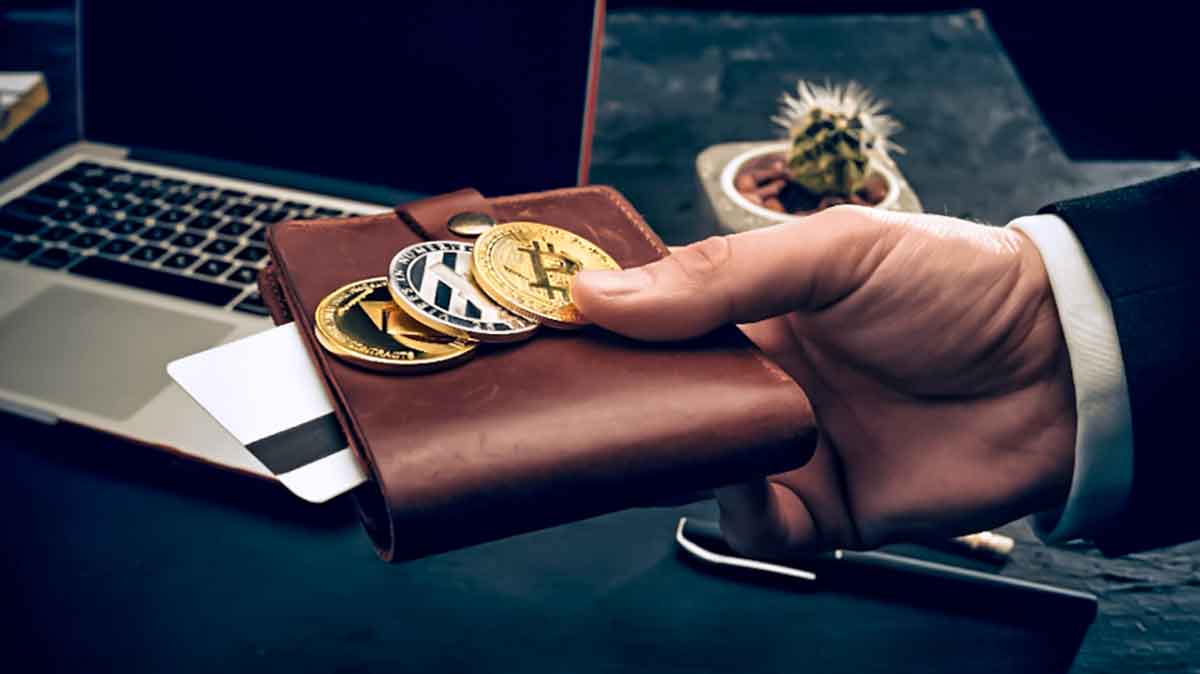
Looking for a safe place to store XRP tokens, while having seamless access to the crypto trading markets? This guide compares the best XRP wallets for 2024. We cover various Ripple wallet types, focusing on features, security, usability, fees, and custodianship.
List of the Best XRP Wallets for 2024
The best XRP wallets for 2024 are listed below, with a brief overview of each provider:
- Best Wallet – Overall, Best Wallet is one of the best XRP wallets to consider. This wallet supports XRP, Bitcoin, Ethereum, Cardano, and plenty of other cryptocurrencies. Best Wallet has an in-built staking tool and allows users to swap tokens. It also offers an innovative AI bot, allowing users to ask questions about their crypto portfolio. Best Wallet currently has a waitlist for those wanting to use its wallet before it’s officially released.
- Ledger Nano S Plus – The Nano S Plus is a hardware wallet offered by Ledger. Retailing for $79, this wallet is the best option for long-term XRP holders. The private keys are never connected to the internet, and transactions are verified by entering a physical PIN. The Ledger Nano S Plus supports more than 5,000 cryptocurrencies across multiple blockchain networks.
- Exodus – Exodus offers a free non-custodial wallet for iOS and Android users. It also comes as desktop software and a browser extension. Not only does Exodus support XRP but thousands of other cryptocurrencies. In-wallet features include staking, fiat payments, and support for Web 3.0 dApps.
- Trust Wallet – Trust Wallet supports over 70 blockchains, including XRP, Bitcoin, Solana, and Ethereum. Custom tokens can be added to the wallet, and no fees are charged for storing or receiving cryptocurrencies. Trust Wallet supports multiple devices, including browser extensions and smartphones. Trust Wallet offers fee-free token swaps and staking pools.
- Binance – The Binance web wallet supports XRP and over 350 other cryptocurrencies. This is a custodial wallet that connects to the Binance exchange. This will appeal to active users that want to store and trade XRP in one location. Binance also offers XRP savings accounts that currently yield 1.98% annually.
- Coinomi – Coinomi is the best Ripple wallet for diversified portfolios. In addition to XRP, it supports 125 other blockchain standards. This includes everything from Bitcoin and Ethereum to Binance Smart Chain and Tron. Coinomi is a non-custodial wallet supporting an iOS and Android app.
- XRP Paper Wallet – Those looking to store their Ripple offline might consider XRP Paper Wallet. This provider allows users to create a Ripple wallet address and private key. The user can then print their credentials and keep the paper wallet somewhere safe. This is a free alternative to Ledger and other XRP hardware wallets.
The Basics of Ripple Wallets
Ripple wallets allow investors to store, send, and receive XRP tokens. Most Ripple wallets are software-based and can be accessed via an app, desktop software, or web browser. Long-term investors might consider a Ripple hardware wallet, which keeps the XRP tokens in cold storage.
After buying XRP from an exchange, the next step is to choose a suitable Ripple wallet. In a nutshell, Ripple wallets keep XRP tokens safe. All XRP wallets come with a public address and a private key.
- The public address is similar to a. bank account number, as it allows users to receive XRP tokens.
- The public key represents the user’s password, so must never be shared.
XRP wallets come with varying levels of security, depending on the type. For example, leading custodial wallets typically offer two-factor authentication, and the private keys are kept in institutional-grade cold storage. The wallet custodial is required to secure client-owned XRP tokens.
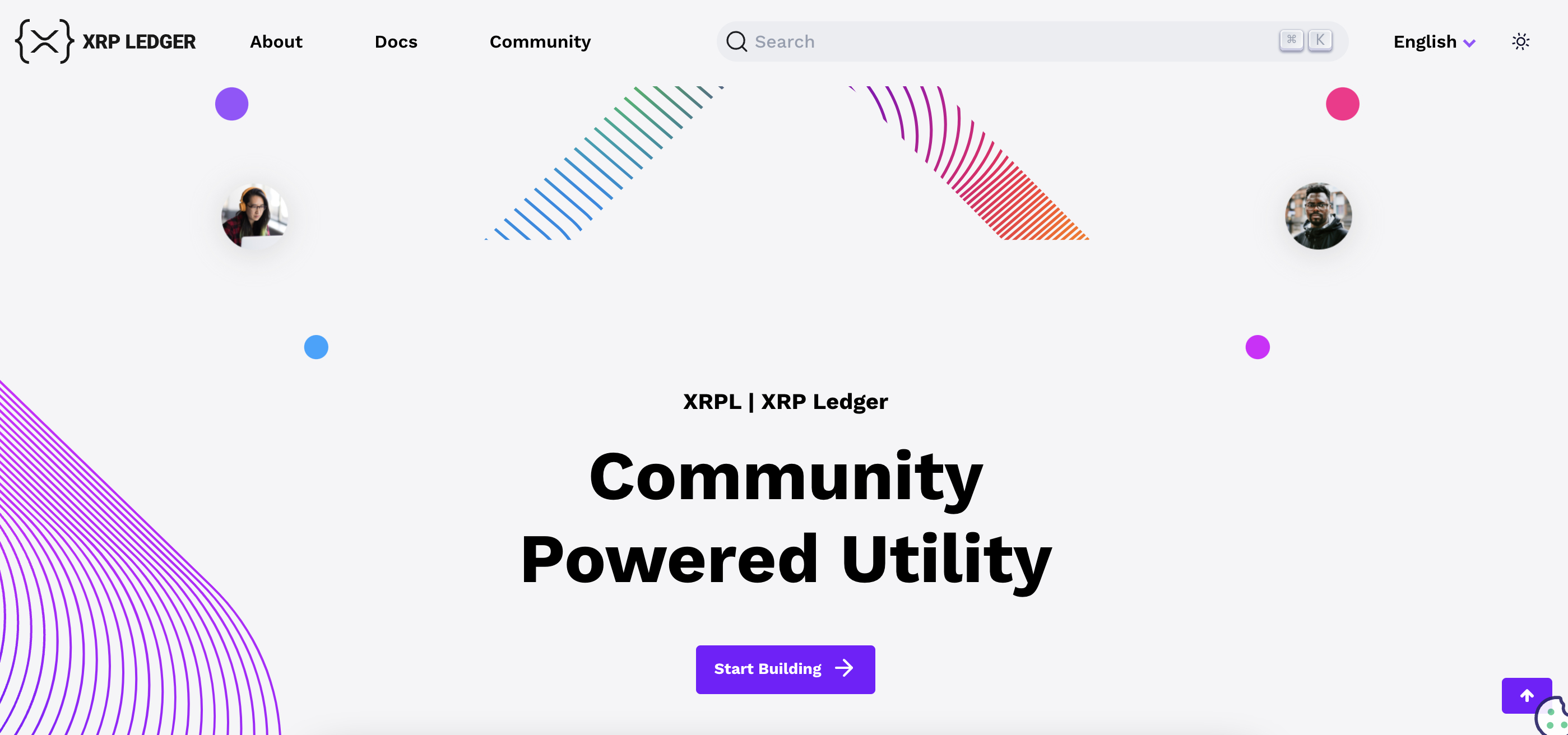
Non-custodial wallets require users to look after their own private keys. This is usually provided as a 12 or 24-word secret passphrase. Non-custodial wallets are often protected by a password, although multi-sig permissions and biometrics add extra layers of security. Many XRP wallets allow users to swap tokens and access exchange services. This will suit active investors that want to store and trade XRP tokens without leaving the wallet. In most cases, XRP wallets are free to use. However, to activate a Ripple wallet address, users need to add a non-refundable deposit of 10 XRP. This amounts to approximately $5 based on current XRP/USD prices.
Why Do You Need a Ripple Wallet?
Below, we explain why a Ripple wallet is needed when holding XRP tokens.
Store XRP Tokens
Investing in XRP is a two-step process.
- First, the user must buy XRP from a crypto exchange.
- Second, the XRP tokens must be stored in a crypto wallet.
While most exchanges have an in-built wallet, the vast majority operate without a regulatory license. As such, it’s safer to withdraw the XRP tokens into a private wallet. Nonetheless, as long as the user follows basic security practices (like not sharing their private key or clicking on unknown links), the wallet will keep the XRP tokens secure.
Transfer XRP Tokens
In addition to keeping the XRP tokens safe, Ripple wallets also allow users to transact. Transactions go through the Ripple network, which takes seconds to validate. Ripple wallets provide users with a unique public address. Here’s an example of what that looks like: rpAepkGqJnQSNTxozKSu9KPrxHVgyLpL8p The public address should be provided to the sender when receiving XRP tokens in the wallet. Similarly, users can transfer XRP to another person by providing the recipient’s wallet address.
Trade XRP Tokens
The best wallets for XRP come with additional functionality, such as being able to trade. Best Wallet, for example, is developing a tool that will allow users to swap XRP tokens on a cross-chain basis. This means that XRP can be swapped for tokens on another blockchain network, like Bitcoin or Ethereum.
Earn XRP Rewards
Although XRP cannot be staked on the blockchain, a number of Ripple wallets support interest-bearing products. For example, the best wallet for Ripple savings accounts is Binance. While the APY is modest at 1.98%, users can withdraw their XRP tokens at any time. Some wallets allow users to lend their XRP tokens to borrowers. This will generate interest, allowing investors to earn passive income.
Best Ripple Wallets: Full Reviews
Now that we’ve covered the basics, let’s move on to our reviews of the best XRP wallets.
1. Best Wallet – Overall Best XRP Wallet
Best Wallet is the overall best wallet for Ripple investors. This is a decentralized wallet that offers non-custodial storage. This means that Best Wallet does not have access to the user’s private keys. Best Wallet is being developed for multiple devices, including an iOS and Android app. The wallet will also be compatible with desktops. Best Wallet is a multi-chain wallet, meaning it supports a wide range of cryptocurrencies. On top of XRP, this includes Bitcoin, Litecoin, BNB, Solana, Avalanche, Dogecoin, Dash, and Ethereum. This is ideal for storing crypto portfolios in one place. Best Wallet comes with basic functionalities, such as storing, sending, and receiving XRP.

It also offers premium features, such as being able to stake cryptocurrencies and swap tokens without leaving the wallet. Additionally, Best Wallet has formed a partnership with WERT – a regulated payments processor. This will enable Best Wallet users to buy XRP and other cryptocurrencies with a debit/credit card. We also found that Best Wallet is developing an artificial intelligence (AI) bot. This will come pre-installed with the wallet and allows users to ask crypto-related questions. For example, the user might ask “How can I sell my XRP tokens” or “What is XRP’s all-time high?”. Another feature of Best Wallet is its support for airdrops.

This will give users access to new cryptocurrencies that have chosen to airdrop their tokens. Some of the features offered by Best Wallet will only be available to those staking BWAT tokens. This is the native cryptocurrency of the Best Wallet ecosystem. By staking BWAT, users benefit from passive rewards, zero-fee transactions, access to the AI bot, and more. That said, Best Wallet hasn’t been launched yet. It is, however, offering early-bird access via a waitlist. Those that like the sound of Best Wallet can add their email to the waitlist and wait for a download link.
| Type of XRP Wallet | Custodianship | Supported Coins | Fee to Buy XRP | App? | Staking/Interest? | Staking/Interest Rate |
| Desktop wallet and mobile app | Non-custodial | XRP and most other major blockchains, including Bitcoin, Ethereum, Binance Smart Chain, and Arbitrum. | Fiat purchases are processed by WERT, which charges 4%. | Yes | Yes, in-built staking tool. | Not stated |
Pros
- Overall best XRP wallet for 2024
- Multi-chain wallet supporting XRP, Bitcoin, Ethereum, Binance Smart Chain, and other major networks
- Supports staking and DeFi dApps
- In-wallet token swaps
- Available as an app and desktop software
- AI bot for asking crypto-related questions
Cons
- Still being developed
- Debit/credit card fees of at least 4%
2. Ledger Nano S Plus – Leading Ripple Hardware Wallet for Offline Storage
The Ledger Nano S Plus is a hardware wallet for storing XRP offline. The private keys to the wallet are encrypted in the device. Only the user has access to the private keys, so this is a fully non-custodial option. As a cold storage solution, the Ledger Nano S Plus offers one of the safest ways to secure XRP tokens long-term. In addition to cold storage, users must enter a PIN on the device to authorize transfers. As such, even if the wallet was stolen, transactions cannot be executed. The Ledger Nano S Plus also offers remote recovery. This is achieved by importing the 24-word backup passphrase into another wallet.
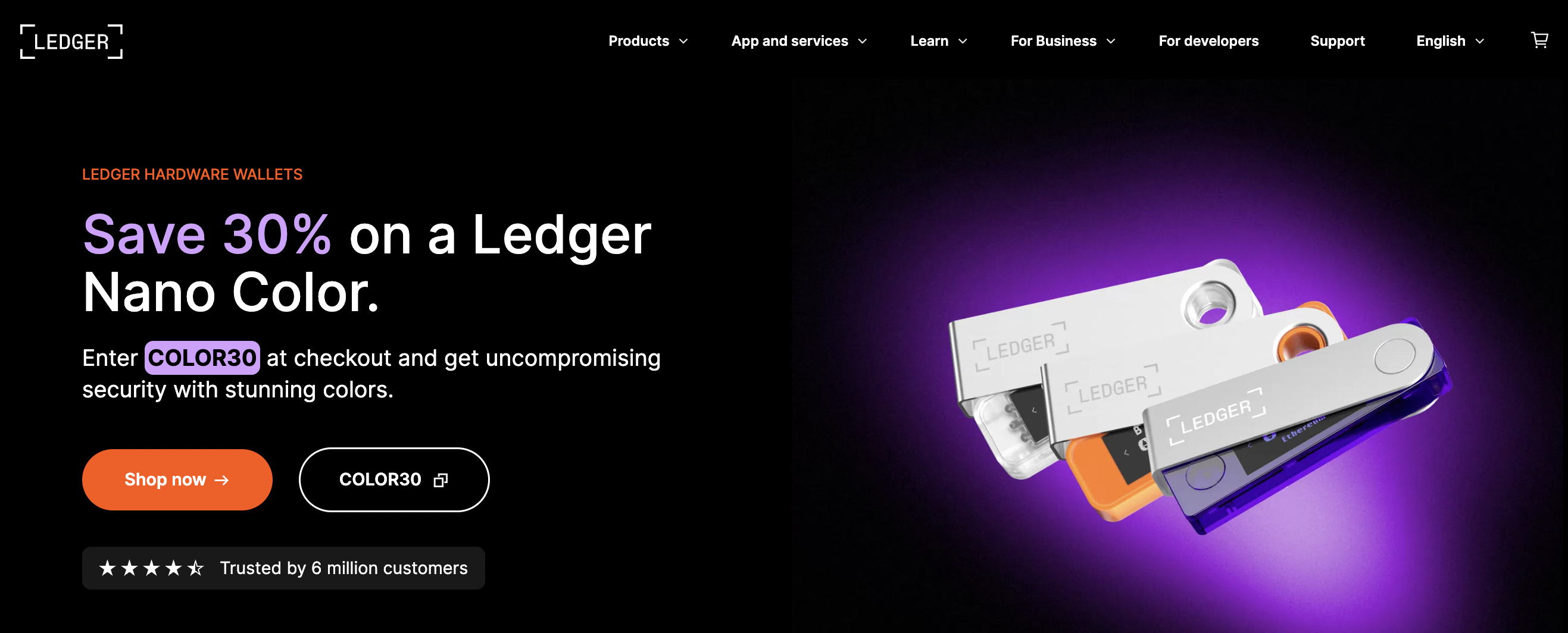
This can either be another Ledger device or a software wallet supporting imported private keys. The Ledger Nano S Plus can be purchased for $79, directly from the manufacturer’s website. It supports XRP and dozens of other blockchain standards. This includes Bitcoin, Ethereum, and Binance Smart Chain.
| Type of XRP Wallet | Custodianship | Supported Coins | Fee to Buy XRP | App? | Staking/Interest? | Staking/Interest Rate |
| Hardware wallet | Non-custodial | Over 5,000 cryptocurrencies, including XRP, BNB, Ethereum, and Bitcoin | Fiat payments go through Coinify, which has its own pricing structure | Yes | Yes, but XRP is not supported. | Not stated – depends on the PoS network |
Pros
- One of the best XRP wallets for cold storage
- Buy directly from the manufacturer’s website for $79
- Supports XRP and thousands of other cryptocurrencies
- The private keys are never exposed to the internet
Cons
- No XRP earning tools
- Cumbersome for active traders that want to actively move funds
3. Exodus – Self-Custody Wallet Supporting XRP and Thousands of Other Tokens
Exodus is a self-custody wallet that supports XRP and thousands of other cryptocurrencies. In fact, Exodus is compatible with over 50 blockchain networks. This includes everything from Bitcoin and Binance Smart Chain to Ethereum, Arbitrum, and Solana. What’s more, any token that operates on a supported network can be added to Exodus manually. Exodus is available on a variety of device types. This includes desktop software, web browsers, and a mobile app for iOS and Android. We like that Exodus does not charge any additional fees when sending XRP to another wallet. We also like that receiving and storing XRP is free. There are fees to pay when swapping tokens, staking, or buying cryptocurrencies with fiat money.

These services are provided by third parties and can vary depending on the product. Nonetheless, Exodus is also great for those that like to check crypto prices regularly. It offers real-time portfolio management tools that provide prices in the user’s local currency. We also like that Exodus offers non-custodial storage, meaning only the user has access to the private keys.
| Type of XRP Wallet | Custodianship | Supported Coins | Fee to Buy XRP | App? | Staking/Interest? | Staking/Interest Rate |
| Desktop software, browser extension, and a mobile app | Non-custodial | Thousands of cryptocurrencies across 50+ networks. This includes XRP, Bitcoin, Solana, Ethereum, and Binance Smart Chain. | Fiat payments go through a third party and can cost up to 5.45%, depending on the payment type and currency | Yes | Yes, an in-built staking tool for a variety of PoS coins. But no earning tools for XRP. | Up to 18.9% |
Pros
- Best XRP wallet for supported devices – comes as a mobile app, desktop software, and browser extension
- Supports thousands of cryptocurrencies across 50+ networks
- Does not add a markup on GAS fees
- User-friendly portfolios management tools
Cons
- Charges up to 5.45% to buy XRP with a debit/credit card
- Very limited security tools
4. Trust Wallet – User-Friendly Wallet App With Fee-Free Token Swaps
Trust Wallet is considered one of the best decentralized wallets in the market. This XRP wallet is used by over 60 million people – which is a testament to its popularity. In particular, Trust Wallet is favored for its user-friendliness and fee-free services. Regarding the latter, Trust Wallet allows users to stake and swap tokens without paying commissions. Storing and receiving cryptocurrencies is also free, and no markups are made on outgoing transactions. The only way Trust Wallet makes money is when users buy cryptocurrencies with a debit/credit card. Considering this costs up to 5%, Trust Wallet should not be used for this purpose. Nonetheless, we like that Trust Wallet supports over 70 blockchain networks.

This includes XRP, Bitcoin, Arbitrum, Cardano, Ethereum, Litecoin, and many others. Moreover, Trust Wallet allows users to add custom tokens via the contract address. Trust Wallet is available to download as a free iOS and Android app. Browser extensions are also supported, including Chrome and Edge.
| Type of XRP Wallet | Custodianship | Supported Coins | Fee to Buy XRP | App? | Staking/Interest? | Staking/Interest Rate |
| Browser extension and mobile app | Non-custodial | Over 4.5 million cryptocurrencies and NFTs across 70+ blockchain networks | Up to 5%, as transactions are processed by Simplex | Yes | Yes, an in-built staking tool for a variety of PoS coins. But no earning tools for XRP. | Up to 19.7% |
Pros
- One of the best XRP wallets for user-friendliness
- Supports XRP and 70+ other blockchains
- Offers fee-free staking and token swaps
- Add custom tokens via the contract address
Cons
- Charges up to 5% to buy cryptocurrencies with fiat money
- No XRP earning tools
5. Binance – Centralized Ripple Wallet for Active Crypto Investors
While Binance is best known for its spot trading exchange, it also offers a fully-fledged wallet. This is a custodial wallet, so Binance does not share private keys. Nonetheless, it comes with two-factor authentication and keeps most client cryptocurrencies offline. It also allows users to create whitelisted withdrawal addresses. Other security features include whitelisted devices and real-time transaction alerts. The Binance wallet supports all 350+ cryptocurrencies listed on its exchange. This includes XRP, Bitcoin, Tether, Litecoin, Cardano, BNB, and Dogecoin. While this is a custodial wallet, users are free to send and receive cryptocurrencies.

That said, Binance has a flat withdrawal fee in place for each supported token. This is always higher than the current GAS fee quoted by the blockchain. On the flip side, Binance is a great option for earning XRP rewards. Its flexible savings accounts are currently offering an APY of 1.98%. We also like that XRP can be traded at just 0.1%.
| Type of XRP Wallet | Custodianship | Supported Coins | Fee to Buy XRP | App? | Staking/Interest? | Staking/Interest Rate |
| Web wallet and a mobile app | Custodial | Over 350 cryptocurrencies, including XRP, Cardano, Ethereum, BNB, and Bitcoin | 0.1% to exchange cryptocurrencies. Fiat payment fees depend on the country of residence and payment type. | Yes | Yes, offers flexible XRP savings accounts. | Up to 1.98% on XRP |
Pros
- All-in-one ecosystem for storing and trading XRP
- Offers flexible XRP savings accounts with no lock-up terms
- Trade XRP and pay just $1 for every $1,000 traded
- Supports over 350 cryptocurrencies
Cons
- Charges a markup on XRP withdrawals
- Centralized wallet – meaning withdrawals must be approved
6. Coinomi – Established XRP Wallet for Mobile and Desktop Users
Next up on this Ripple wallets list is Coinomi – an established provider that was launched in 2014. It supports more than 125 blockchains, ranging from XRP and Bitcoin to Ethereum, Nem, and Binance Smart Chain. Users can choose from the Coinomi app or desktop software. Supported operating systems include Android, iOS, Windows, and Mac. There are no fees to download or use Coinomi. GAS fees are paid directly to miners without any markup. Moreover, users can adjust the GAS fees they pay to push the transaction through faster. We also like that Coinomi allows users to view their crypto portfolio in 168 different currencies. This makes it seamless to keep tabs on how cryptocurrency investments are performing.

In terms of security, Coinomi is a non-custodial hot wallet. It is always connected to the internet, and users are responsible for keeping their private keys safe. Desktop wallets are protected by a password, while the app comes with a PIN or biometric login. Finally, while Coinomi supports fiat purchases, this is handled by Simplex. As such, payments will cost up to 5%.
| Type of XRP Wallet | Custodianship | Supported Coins | Fee to Buy XRP | App? | Staking/Interest? | Staking/Interest Rate |
| Desktop software and a mobile app | Non-custodial | Thousands of cryptocurrencies across 125+ blockchains. This includes XRP, Bitcoin, Ethereum, Nem, and Binance Smart Chain. | Up to 5%, as transactions are processed by Simplex | Yes | Yes, but XRP is not supported. | Not stated – depends on the PoS network |
Pros
- Established XRP wallet supporting over 125 blockchains
- Choose from the desktop software or mobile app
- Allows users to adjust GAS fees for faster transactions
- Portfolio management tool supports 168 fiat currencies
Cons
- Limited security features
- Charges up to 5% for fiat payments
7. XRP Paper Wallet – Free Paper Wallet for Storing Ripple Offline
XRP Paper Wallet offers a free alternative to hardware wallets like Ledger. This is because the provider allows users to generate free XRP wallet addresses and private keys. The idea is that the user will print the wallet credentials and leave them stored on a sheet of paper. And hence, the XRP tokens cannot be hacked remotely. This option will only suit long-term XRP investors, as the process of bringing the tokens back online is cumbersome. For example, the user would first need to download an XRP software wallet like Exodus.

Then, the user would need to import the private keys that are printed on the sheet of paper. This would then allow the user to control the XRP tokens from the new wallet and make transfers accordingly. Nonetheless, XRP Paper Wallet is completely free to use.
| Type of XRP Wallet | Custodianship | Supported Coins | Fee to Buy XRP | App? | Staking/Interest? | Staking/Interest Rate |
| Paper wallet | Non-custodial | XRP | N/A | No | No | N/A |
Pros
- Free paper wallet that keeps XRP tokens offline
- Generate new wallet addresses and private keys instantly
- Import the private keys to another wallet at any time
Cons
- Not suitable for those that regularly buy and sell XRP
- No access to XRP earning tools
- Unable to recover the funds if the paper wallet is lost or damaged
Best Ripple Wallets: Our Ranking Criteria
We rank Ripple wallets based on a strict criteria list. This includes security, device types, custodianship, fees, and supported networks.
Check out the list below, which highlights our criteria when reviewing the best Ripple wallets for 2024.
- Security: One of the main priorities for XRP investors should be the security of a wallet. This can include everything from cold storage and two-factor authentication to wallet address whitelisting.
- Supported Networks: In addition to XRP, we prefer wallets that support other blockchain networks. The best XRP wallets are compatible with Bitcoin, Ethereum, Binance Smart Chain, and other major blockchains.
- Custodial or Non-Custodial: Investors should also consider whether they want a custodian to look after their XRP tokens. Or, if they prefer non-custodial storage, which means the wallet provider does not have access to the user’s private key.
- DeFi Features: The best XRP wallets allow users to connect to the decentralized web. This allows users to swap XRP with other tokens, without a centralized exchange. Some XRP wallets also offer savings accounts, allowing users to earn passive rewards.
- Supported Devices: Investors should also choose an XRP wallet that is compatible with their preferred device. For example, Best Wallet is compatible with smartphones and desktops. While Ledger is available as a hardware device.
- Fees: Most XRP wallets are free to use. This includes storing and receiving XRP tokens from another location. The best XRP wallets do not charge markups on outgoing transactions.
While researching the best XRP wallets can be time-consuming, it’s important that investors make the right decision. For instance, while active XRP investors will be suited for a software wallet, long-term HODLers might prefer cold storage.
How do Ripple Wallets Work? The Basics
Now that you know how to buy XRP and where to store it. Here are the basics of Ripple wallets are as follows:
- Ripple wallets allow users to store XRP tokens
- Users can also send and receive XRP tokens via the blockchain
- Additional wallet features can include token swaps and fiat money deposits
Before getting started, users should be familiar with how incoming and outgoing transactions work. First, XRP transactions are processed wallet-to-wallet. To receive XRP, the funds will need to be sent to the user’s wallet address. Each XRP wallet address is unique. This ensures that the transfer goes directly to the wallet owner.

Outgoing transactions work much the same. The sender will transfer the XRP tokens to the receiver’s wallet address. Only the sender pays fees when transferring XRP. This is fixed at 0.00001 XRP, or about $0.000047 based on current prices. This makes it very efficient to transact in XRP. Wallet-to-wallet transfers are fast, too, often taking a few seconds. That said, when creating an XRP wallet, it remains inactive until it is funded. To activate the address, users need to add at least 10 XRP. This cannot be withdrawn, so it’s a non-refundable deposit. We should also note that XRP wallets are secured by private keys. Whether or not the user has access to the private keys depends on the custodianship.
- Custodial XRP wallets do not share private keys with users
- Non-custodial XRP wallets do provide users with private keys, usually via a backup passphrase
Private keys provide access to the XRP wallet from any device. As such, those opting for a non-custodial wallet should ensure the private keys are kept safe.
Different Types of Ripple Wallets
It is also wise for XRP investors to understand the different types of Ripple wallets in the market. Read on to distinguish between software, hardware, and paper wallets.
Ripple Software Wallets
Most XRP investors opt for a secure software wallet. This allows investors to safely store their XRP tokens while still having access to the crypto markets. The most convenient option is to download an XRP wallet app. This gives users unfettered access to their XRP tokens at all times. The mobile wallet is secured by a PIN or fingerprint ID. Mobile wallets also make it seamless to transfer XRP, as a QR scanner is usually included.

Ripple desktop wallets are also popular. These come as downloadable software or a browser extension. Either way, desktop wallets are secured by a password and allow users to store XRP on a laptop or PC. Custodial XRP wallets are usually offered on the provider’s website. This allows users to access the wallet by logging into their account – which is often secured by two-factor authentication.
Ripple Hardware Wallets
Those that prefer security over convenience might prefer a Ripple hardware wallet. This keeps the XRP tokens in cold storage, meaning the private keys are not at risk of being hacked remotely. One of the best hardware wallets is the Ledger Nano S Plus. This retails for $79 and supports some of the best utility tokens – including XRP, Ethereum, and BNB.
Ripple Paper Wallets
Those without the budget to buy a hardware wallet might consider an alternative approach – paper wallets. This stores the private keys on a sheet of paper. There is no risk of being hacked remotely, as the XRP wallet credentials are not stored anywhere else. But do remember that paper wallets are not suitable for active traders. Moving XRP tokens from the paper wallet to another location is far from convenient.
How Safe Are XRP Wallets?
We have discussed a variety of XRP wallet types. But which is the safest? It goes without saying that cold storage offers the most secure way to store XRP tokens. After all, an overwhelming majority of cryptocurrency thefts are conducted remotely. Cold wallets solve this issue by remaining offline at all times. But cold wallets do not make it convenient to access the cryptocurrency markets. Those looking to actively move XRP tokens might prefer a hot wallet. The security offered by hot wallets will depend on the custodianship. Non-custodial hot wallets like Best Wallet and Trust Wallet do things differently. As only the user has access to the wallet’s private keys, it is their responsibility to keep them safe. This can be secured via a password, PIN, or biometric ID – depending on the provider. Ultimately, no XRP wallets are 100% risk-free. As such, users should have a firm understanding of wallet best practices before choosing a provider.
How to Set up an ADA Wallet
Looking to store XRP tokens in a secure Ripple wallet right now? Here are the required steps when using Best Wallet, a non-custodial wallet.
Step 1: Download the Best Wallet App
Users can get started by downloading the Best Wallet app on iOS and Android. Click ‘Download’ and get the app for free. Best Wallet will soon be compatible with desktop devices.
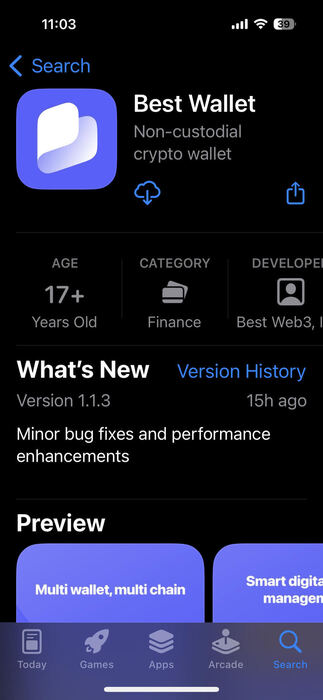
Step 2: Registration Process
Once the app is downloaded, you can open the application and register a new account. Simply enter your email address manually, or click the ‘Continue with Apple/Google’ button to continue.
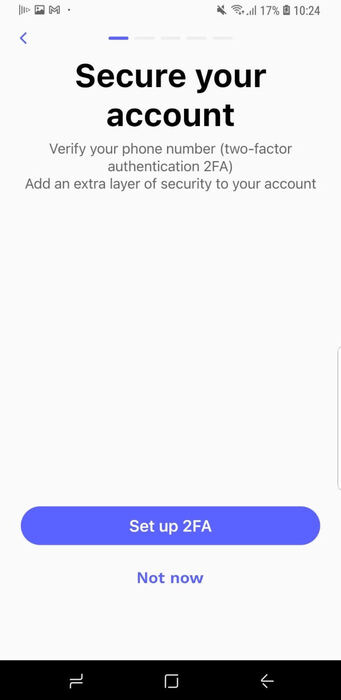
Step 3: Complete Security Requirements
Users have the option to create a two-factor authentication to add an extra layer of security to their accounts. You will be provided with a six-digit security code which needs to be entered every time you visit the app. There is also a mandatory four-digit security password you have to create – this will give you access to the app. Best Wallet also offers a fingerprint verification option to access the account.
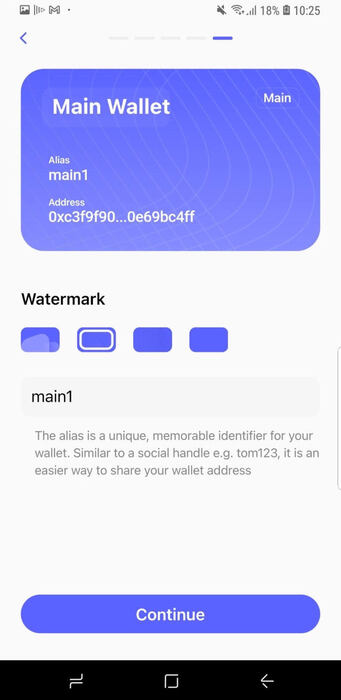
Step 4: Start Using Best Wallet
After the registration and security steps have been completed, users can access all the suite of features that Best Wallet offers. This includes the decentralized exchange, trading options, and upcoming features such as market insights, NFT wallets, and taken staking features.
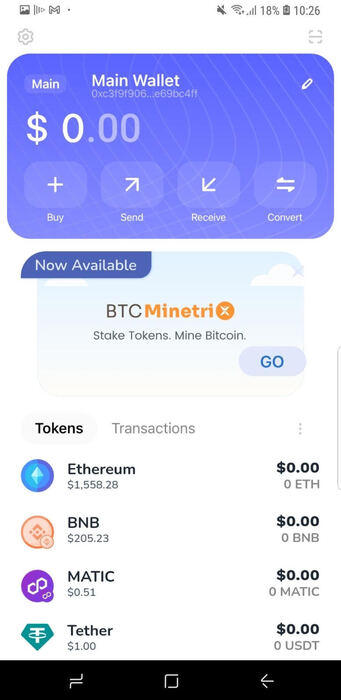
The Verdict
In summary, XRP investors have plenty of options when selecting a Ripple wallet. For the perfect balance between security, features, and user-friendliness – check out Best Wallet. This brand-new XRP wallet is currently accepting users on its waitlist. This gives early-bird users exclusive access to Best Wallet before it’s launched.
References
https://shop.ledger.com/pages/hardware-wallets-comparison https://coinmarketcap.com/currencies/xrp/ https://xrpl.org/reserves.html https://brokercheck.finra.org/firm/summary/298361 https://support.dfinity.org/hc/en-us/articles/360057133012-What-is-Self-Custody https://www.exodus.com/status/#assets https://coinmarketcap.com/ https://trustwallet.com/ https://support.simplex.com/hc/en-gb/articles/360014078420-What-fees-do-you-charge-for-card-payments https://coinmarketcap.com/exchanges/binance/ https://corporate.coinify.com/fees-and-limits https://xrpl.org/transaction-cost.html https://www.fca.org.uk/firms/financial-crime/money-laundering-regulations
FAQs
Where is the best place to store Ripple?
One of the best places to store Ripple is in a hardware wallet, considering that the XRP tokens remain away from live servers and hacking attacks.
Is it safe to store XRP on XUMM?
Yes, while XUMM is considered a secure non-custodial wallet – just remember that users are responsible for keeping their private keys safe.
How do I keep my XRP safe?
XRP holders should choose a Ripple wallet that offers adequate security tools, such as cold storage, two-factor authentication, and biometric logins.
Which wallets allow you to buy Ripple?
While many crypto wallets allow users to buy Ripple, it’s best to go through a regulated provider which offers a safe and low-cost way to trade.
Disclaimer: Crypto is a high-risk asset class. This article is provided for informational purposes and does not constitute investment advice. You could lose all of your capital.
About Cryptonews
At Cryptonews, we aim to provide a comprehensive and objective perspective on the cryptocurrency market, empowering our readers to make informed decisions in this ever-evolving landscape.
Our editorial team, comprised of more than 20 professionals in the crypto space, works diligently to uphold the highest standards of journalism and ethics. We follow strict editorial guidelines to ensure the integrity and credibility of our content.
Whether you’re seeking breaking news, expert opinions, educational resources, or market insights, Cryptonews.com is your go-to destination for all things crypto since 2017.







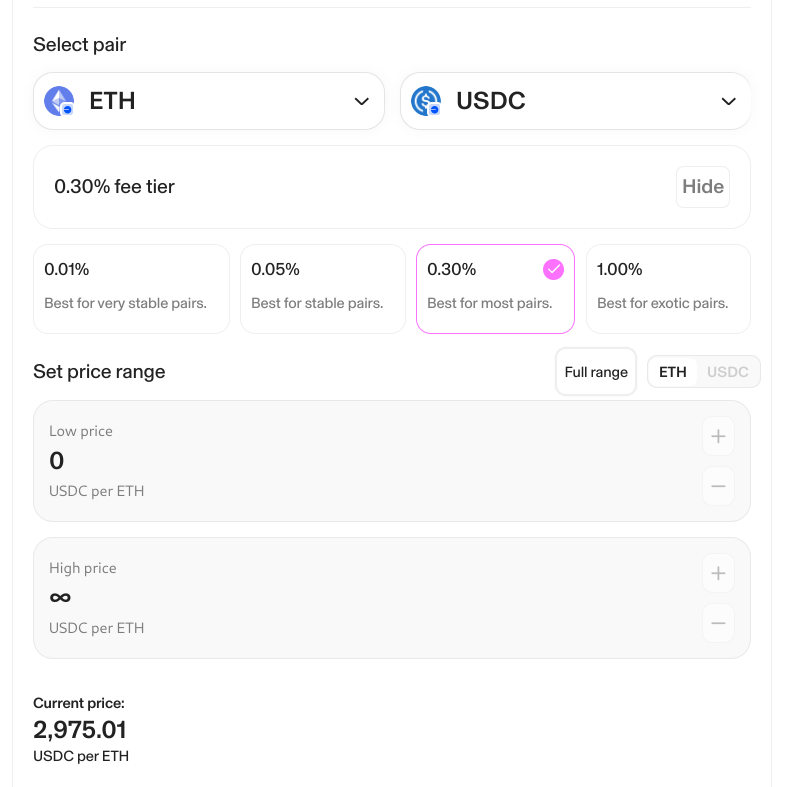
 Eric Huffman
Eric Huffman 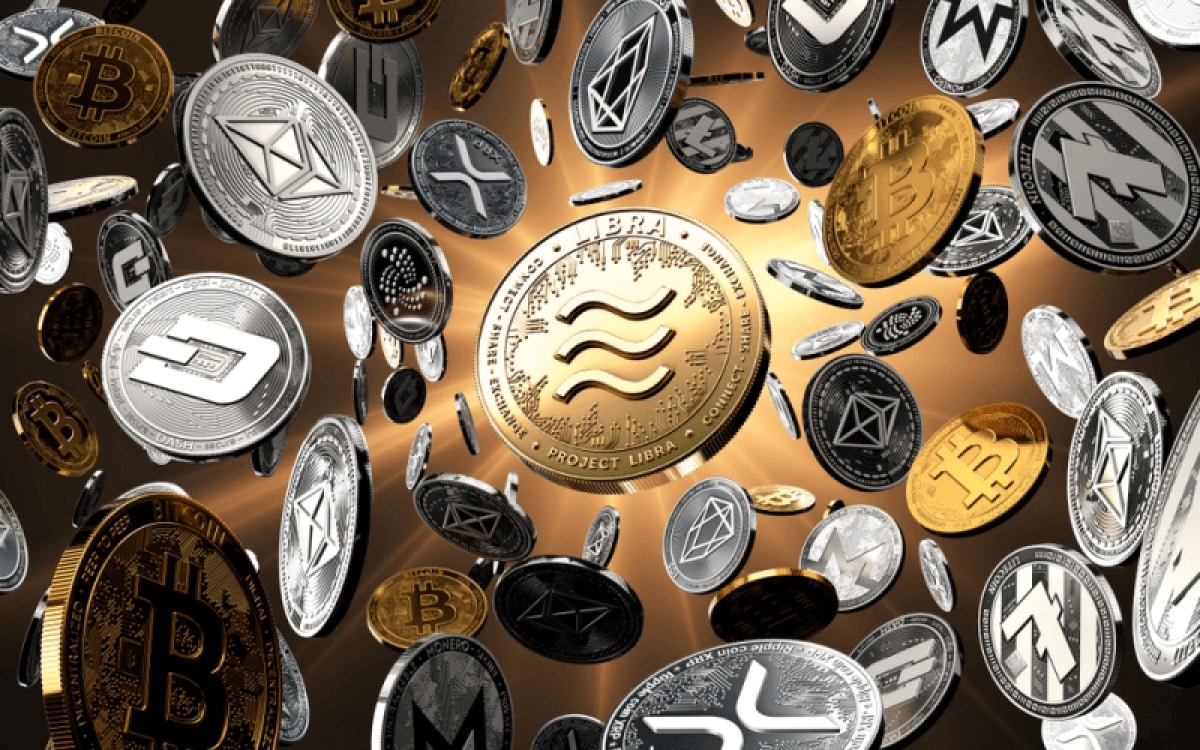
 Alan Draper
Alan Draper 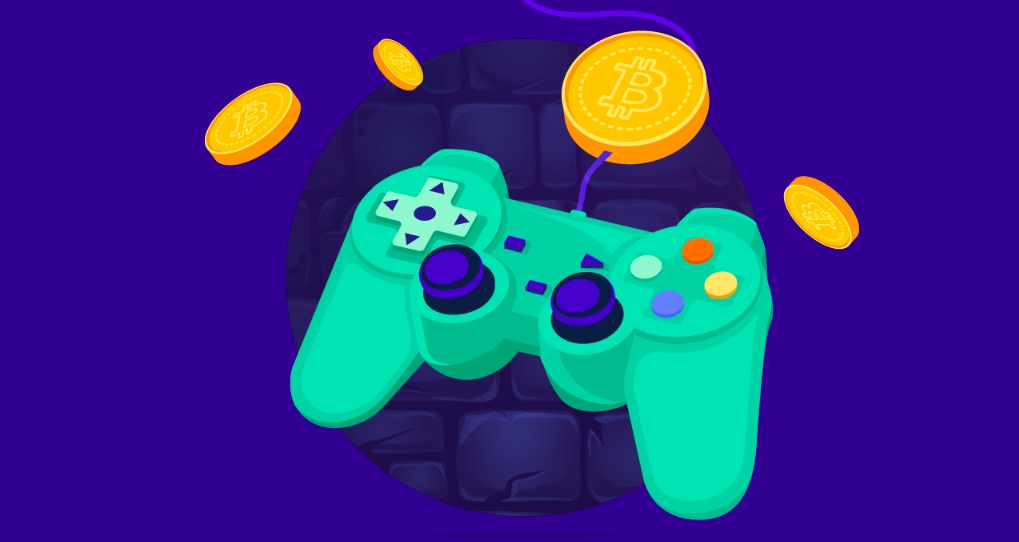
 Viraj Randev
Viraj Randev 
 Kane Pepi
Kane Pepi